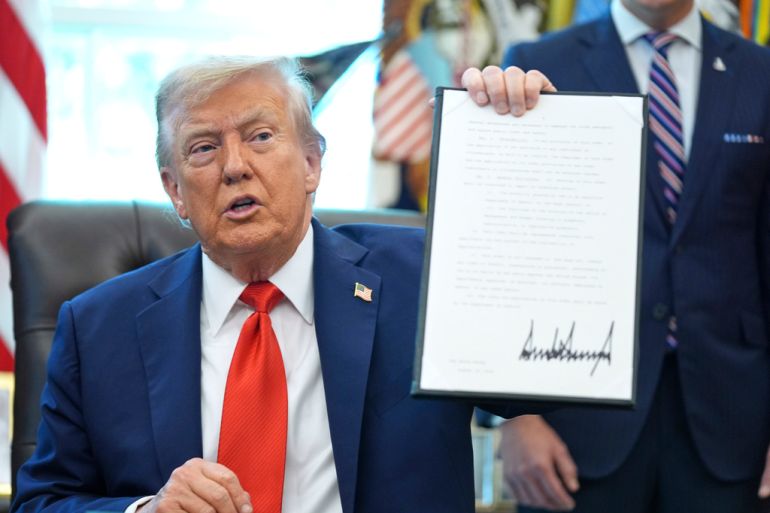United States President Donald Trump has announced intentions to sign an executive order mandating voter identification for all voters, asserting that “Voter I.D. Must Be Part of Every Single Vote. NO EXCEPTIONS!” This declaration was made on his platform, Truth Social, on Saturday as part of a broader effort to reform the nation’s electoral system.
The proposed changes come in the wake of Trump’s repeated claims that his loss to Democratic President Joe Biden in the 2020 presidential election was the result of widespread fraud, a statement that has been widely disputed. Along with the push for voter ID, Trump stated that there would be “No Mail-In Voting, Except For Those That Are Very Ill, And The Far Away Military.”
Executive Orders and Legal Challenges
Earlier this year, in March, Trump signed an executive order that included requirements for documentary proof of citizenship for voters in federal elections. It also stipulated that all ballots must be received by Election Day. However, parts of this order faced legal challenges. In April 2023, a judge blocked the proof-of-citizenship requirement, emphasizing that the U.S. Constitution grants the authority to regulate federal elections to states and Congress, not the president.
Trump’s latest initiative aligns with his long-standing opposition to electronic voting machines, advocating instead for the use of paper ballots and hand counts. Election officials have criticized this approach as time-consuming and costly, arguing it could undermine the accuracy of vote counts.
Implications for Future Elections
As Trump prepares to issue this new executive order, he also announced plans to eliminate mail-in ballots and voting machines before the upcoming 2026 midterm elections. This election cycle will serve as a crucial test of Trump’s policies since returning to power in January. Meanwhile, the Democratic Party aims to challenge the Republican majority in both the House of Representatives and the Senate, aiming to obstruct Trump’s domestic agenda.
The implications of these proposed changes to the electoral system extend beyond party lines, raising questions about voter access and participation. Critics argue that stringent voter ID requirements could disproportionately affect marginalized communities, while supporters claim they are necessary to ensure the integrity of elections.
As the political landscape continues to evolve, the debate surrounding voter ID laws and election reforms is expected to intensify, shaping the future of American democracy.





































































